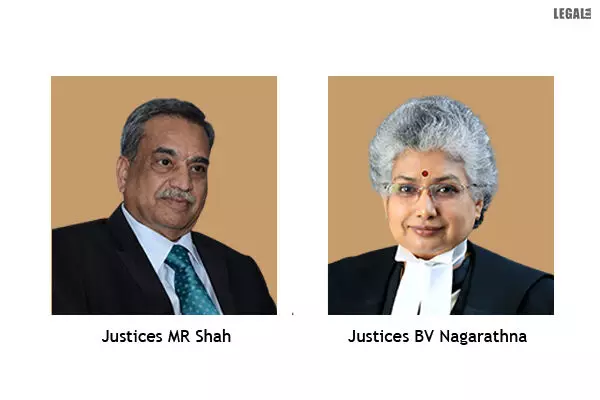- Home
- News
- Articles+
- Aerospace
- Agriculture
- Alternate Dispute Resolution
- Banking and Finance
- Bankruptcy
- Book Review
- Bribery & Corruption
- Commercial Litigation
- Competition Law
- Conference Reports
- Consumer Products
- Contract
- Corporate Governance
- Corporate Law
- Covid-19
- Cryptocurrency
- Cybersecurity
- Data Protection
- Defence
- Digital Economy
- E-commerce
- Employment Law
- Energy and Natural Resources
- Entertainment and Sports Law
- Environmental Law
- FDI
- Food and Beverage
- Health Care
- IBC Diaries
- Insurance Law
- Intellectual Property
- International Law
- Know the Law
- Labour Laws
- Litigation
- Litigation Funding
- Manufacturing
- Mergers & Acquisitions
- NFTs
- Privacy
- Private Equity
- Project Finance
- Real Estate
- Risk and Compliance
- Technology Media and Telecom
- Tributes
- Zoom In
- Take On Board
- In Focus
- Law & Policy and Regulation
- IP & Tech Era
- Viewpoint
- Arbitration & Mediation
- Tax
- Student Corner
- AI
- ESG
- Gaming
- Inclusion & Diversity
- Law Firms
- In-House
- Rankings
- E-Magazine
- Legal Era TV
- Events
- News
- Articles
- Aerospace
- Agriculture
- Alternate Dispute Resolution
- Banking and Finance
- Bankruptcy
- Book Review
- Bribery & Corruption
- Commercial Litigation
- Competition Law
- Conference Reports
- Consumer Products
- Contract
- Corporate Governance
- Corporate Law
- Covid-19
- Cryptocurrency
- Cybersecurity
- Data Protection
- Defence
- Digital Economy
- E-commerce
- Employment Law
- Energy and Natural Resources
- Entertainment and Sports Law
- Environmental Law
- FDI
- Food and Beverage
- Health Care
- IBC Diaries
- Insurance Law
- Intellectual Property
- International Law
- Know the Law
- Labour Laws
- Litigation
- Litigation Funding
- Manufacturing
- Mergers & Acquisitions
- NFTs
- Privacy
- Private Equity
- Project Finance
- Real Estate
- Risk and Compliance
- Technology Media and Telecom
- Tributes
- Zoom In
- Take On Board
- In Focus
- Law & Policy and Regulation
- IP & Tech Era
- Viewpoint
- Arbitration & Mediation
- Tax
- Student Corner
- AI
- ESG
- Gaming
- Inclusion & Diversity
- Law Firms
- In-House
- Rankings
- E-Magazine
- Legal Era TV
- Events
Supreme Court terms copyright infringement a non-bailable offence

Supreme Court terms copyright infringement a non-bailable offence
The bench set aside the high court judgment
The Supreme Court has held that the offence of copyright infringement under Section 63 of the Copyright Act, 1957 is a cognizable and non-bailable offence.
The bench comprising Justice MR Shah and Justice BV Nagarathna ruled that the offence was punishable with imprisonment for three years and onwards but not more than seven years.
The appellant had filed an application under Section 156(3) Cr.P.C. seeking directions from the Chief Metropolitan Magistrate (CMM) for the registration of an FIR against the respondent. He was accused under the Copyright Act read with Section 420 of the IPC.
The CMM directed the concerned SHO to register the FIR under the appropriate provision of the law. Pursuant to the order, the FIR was registered.
However, after that, the accused filed a writ petition before the Delhi High Court to quash the criminal proceedings on the ground that the offence under the Copyright Act was not a cognizable and a non-bailable offence. The court allowed a writ petition and quashed an FIR registered against the writ petitioners for the offences.
The appellant contended before the top court that the high court had committed an error in observing and holding that the offence punishable under the Copyright Act was a non-cognizable offence and did not fall within Part II of the First Schedule of the Cr.P.C. Whereas the respondent contended that it was a non-cognizable offence.
The bench stated, "Considering Part II of the First Schedule of the Cr.P.C., if the offence is punishable with imprisonment for three years and onwards but not more than seven years, the offence is a cognizable offence. Only in a case where the offence is punishable by imprisonment for less than three years or only with a fine, the offence can be said to be non-cognizable. The language of the provision in Part II of First Schedule is very clear and there is no ambiguity whatsoever."
While the accused-respondent had relied on an earlier judgment wherein the expression "not less than 10 years" was interpreted to mean punishment should be 10 years, the court held that the decision was not applicable in the present case. The apex court allowed the appeal and set aside the high court judgment.



